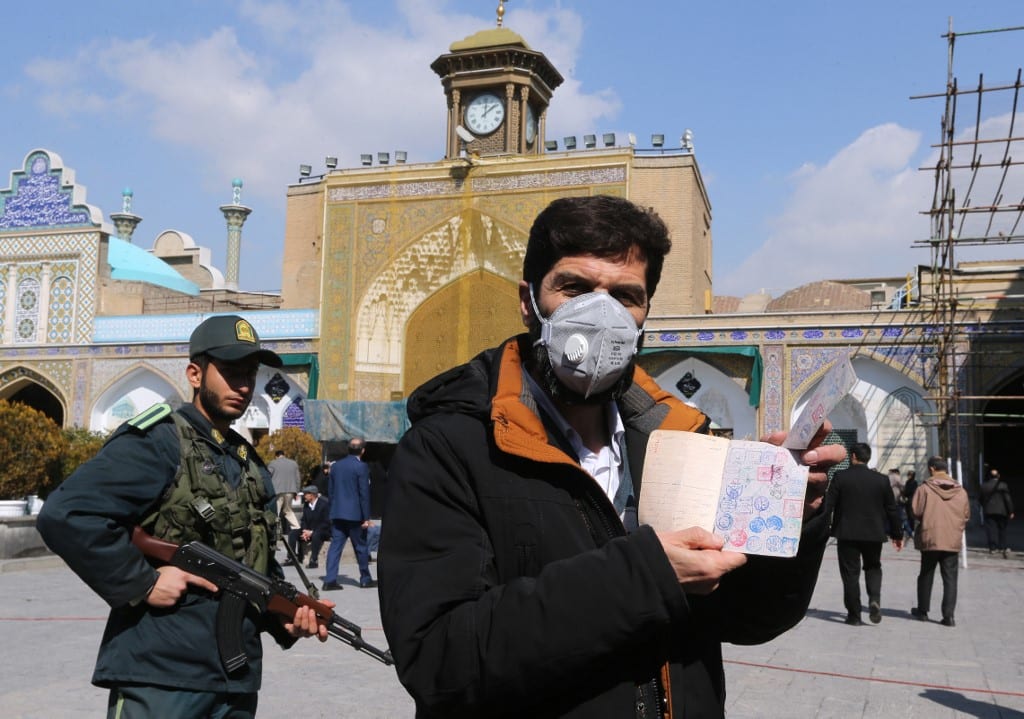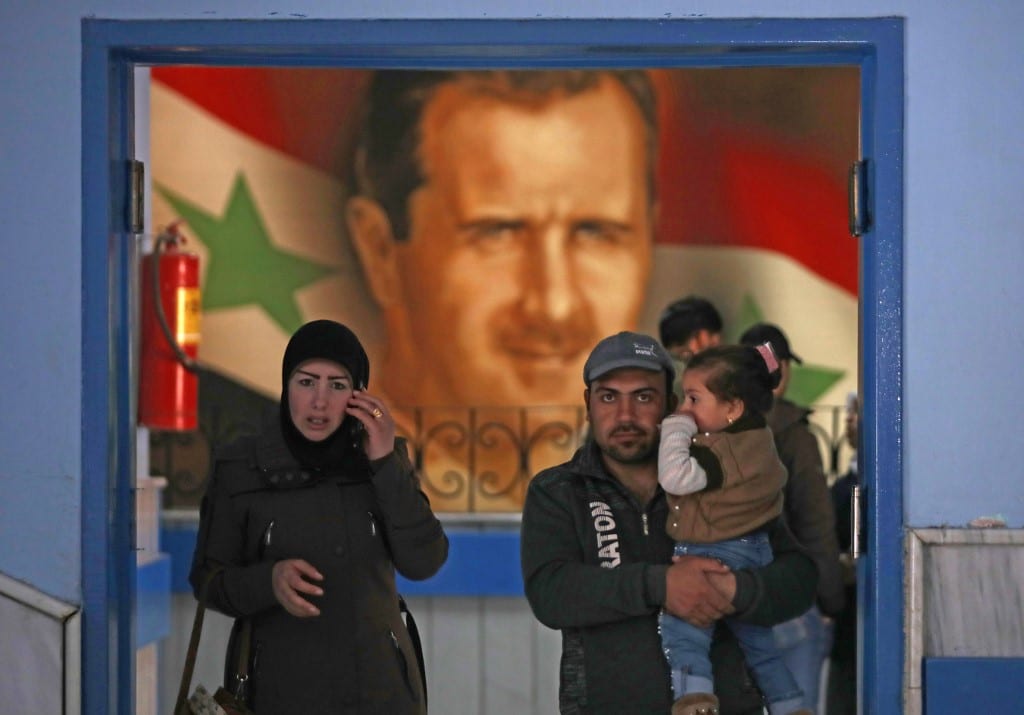At its peak, there were around 500,000 infected cases in Wuhan alone, the Chinese city which was the viral epicenter of the entire global outbreak. Today Chinese authorities are boasting only 1 new case two days in a row, citing their quick, if strict, measures as the main pretext behind their successful “flattening of the curve”. These measures when put in contrast with delayed responses in Italy and others, garnered curiosity about authoritarian government systems and their success rates in combating viral epidemics.
Authoritarian measures are often understood as ruthless, but quick, all-encompassing and effective; characteristics which appear highly optimal during an epidemic, when there is no time to be exceedingly responsive or ‘democratic’ when it comes to the freedoms of citizens. Dragging people off the streets and from their homes, exhaustive surveillance measures, and mass quarantine camps, all seen as highly tyrannical procedures by the rest of the world witnessing them from China, yet, at the epitome of panic and the rising number of deaths, many are now convinced that perhaps this was simply, necessary. In fact, should we fear the ‘softer’ regimes and their slow, lenient, and inefficient management of such outbreaks in the future?
So, are authoritarian regimes better suited to handle a health crises? Perhaps the answer is yes, in the same way a schizophrenic doctor is better suited to run a mental asylum.
Deceit and Corruption
It would be difficult for me to argue that inhumane but strict measures, such as the ones implemented by the Chinese government, are ‘ineffective’ in dealing with the outbreak of a virus; I would however argue that other much more dangerous accompanying traits of an authoritarian regime work in the opposing direction to cancel out any resulting efficiency. Most vitally: Repression, deceit and concealment on part of the government, confuse citizens, cause widespread panic or in other cases, spread ignorance and open a space for lack of compliance of safety measures. Cracking down on whistleblowers and activists, spreading propaganda and erroneous information all do much more harm than ‘strict measures’ could ever save. In fact, in the case of China, secrecy and despotism is the reason the coronavirus spread across the globe the way it has in the first place.
Back in December, the Chinese Dr. Li Wenliang was forced to insincerely confess that he was spreading rumors three days after he attempted to warn the world about his discovery of the COVID-19. He died after contracting the virus from a patient in February. The laboratory in the Shanghai Public Health Clinical Center that first published the Coronavirus genome sequence was shut down with the tests and samples destroyed, the very next day by authorities. In February, Chinese nurses Yingchun Zeng and Yan Zhen published a letter in the British medical journal the Lancet cautioning of the austere supply shortages in Wuhan, and were forced to retract their words a few days after dissemination. The Regime has also unsurprisingly silenced independent journalists, activists and lawyers who were livestreaming updates around the Corona virus, including Li Zehua, Fang Bin, Chen Qiushi, who have all gone missing over the past month under detainment.

In Iran, the narrative is almost mirrored, albeit more perilously with a horrifyingly less-equipped health infrastructure under the country’s severe economic sanctions. During the first weeks of the outbreak, the government cracked down on any reporting on the virus, and consistently denied the virus being a risk to Iranian people. Religious figures continued to invite pilgrims to Qom, the city’s Shiite holy city, until the area became the largest hotbed of infections in the entirety of Iran. Today, more senior government officials (as well as many of the religious establishment) have contracted COVID-19 than in any other country in the world. Lies about the numbers of those infected continue to this day, with videos from whistleblowers leaking on Twitter exposing unreported death tolls and infections. The mistrust in the government has escalated so intensely that some citizens are demanding the Islamic Revolutionary Guards Corps take the reins and apply the quarantines themselves, the same Guards that were crushing anti-government protests a few months back!
Extending from Iran to Lebanon, many Lebanese citizens began self-quarantining themselves long before the government called a state of emergency. After months of an exhausting uprising to the backdrop of a looming economic collapse, many were defeated with the end results: a Hezbollah curation of a government, headed by the new Prime Minister Hassan Diab.
When the outbreak in Iran hit, the government guaranteed for the longest time possible that no decisions were made that would harm their Iranian backers; including allowing Lebanese to fly back and forth between Lebanon and Iran until the very last plane landed in Lebanon a mere week or so ago. The levels of suspicion and weariness in the system has the Lebanese panicked even when observing the relatively low numbers of infected being announced by the Ministry of Health; when one tries to rationalize with their fears an immediate thought follows, “yes but of course that’s not taking into account the numbers of Hezbollah’s Shia population who have gotten it in secret… 100s? 1000s?” While this notion remains unproven, it rests on the fairly logical assessment that Hezbollah leaders would rather lie about these numbers than admit that Iran, supposedly Lebanon’s knight in shining armor, is in reality Lebanon’s Trojan horse. The panicked rumors have extended as far as Hezbollah setting up their own hospitals in secret, who are dealing with thousands of Corona patients at the moment, including Hezbollah fighters arriving from Syria.
Syria is a case in point on many levels; today, schools, mosques, and public events have closed down, and parliamentary elections have been delayed. However, officials have yet to admit that there is a single case of the virus within the country’s borders. The Syrian Minister of Health became a laughing stock last week, when his response to whether the ministry will announce cases was “Hamdullilah (praise God), the Syrian Arab Army has disinfected many of the germs present on Syrian land”. The continuous boasting of zero cases has had a double effect; either panic within individuals that calculate that the worst-case scenario could be horrendous, within Syria’s crumbling and already at capacity health care system, or total denial and the maintaining of life as normal among those who actually believe the regime. Both, horrifying consequences in the case of a very real viral pandemic.


Cybertech and Authoritarian Regimes
Without treading into conspiracy theory territory, it isn’t difficult to imagine that dictators have often taken advantage of “disasters” throughout history; this could mean any actions taken throughout wars, natural disasters, terrorist attacks, economic collapses, and now a global viral pandemic, that later showed their true colors to be further measures of oppression and intensive control. It’s not that they decide in the moment that they will implement these measures; these plans have been developed prior, but large disasters provide the optimal opportunity to put them into action.
In the case of the COVID-19 outbreak, we’re already witnessing China fleshing out a government nation-wide, individual-based database that has been in the works for years, with the virus as a backdrop. Drones are now monitoring citizens who are breaking quarantine rules or not wearing masks. Every Chinese citizen is now required to enter their national identity numbers into a software that links the individual to a tracking system based on high-tech surveillance technology that keeps tabs on travels, hotel stays, pharmacy purchases, locations, and even monitoring chats related to coronavirus. This horrifying package comes at the partnership of the government and major telecoms corporations, including China telecom which has curated a color-coding scoring system to identify patients based on their risk-levels. This system had been termed China’s ‘Data Leviathan’, a totalitarian system based on data accumulation, not different to what the Middle East has been doing, albeit a lot more sophisticated. The system had originally only encompassed Xinjiang and Tibet, only 1.8% of the Chinese population, but COVID-19 has offered the opportunity on a silver platter to implement these measures onto most of China.
Israel is the second country to employ these kinds of tactics, when on March 15 it approved ‘emergency regulations’ within which Shin Bet can tap into Corona-positive Israeli’s phones so that they could track the movements of the virus around the country. Those who have interacted with others who are infected are apparently receiving SMS messages commanding them to self-quarantine.
Totalitarian regimes have for years based their control infrastructure on the theme of “security”, and therefore oppressive actions are often justified on the basis of “security threats” and the excuse of “protecting the people”. Whether that is ‘terrorists’, ‘armed gangs’, ‘threats to internal security’, ‘threats to the unity of the country’s people’, and the like, all act as justifications for cracking down on peaceful protests, heavy surveillance mechanisms, arrests based on Facebook posts, and the list goes on. In the case of COVID-19, we are now faced with the unique opportunity of both an internal and external security threat, providing the ultimate occasion to double down on these devices.


This is not to say, that these kinds of technologies don’t prove useful when the intentions are pure. In Taiwan, boasting only 100 cases with merely 1 death, they’d learned a giant lesson from the 2003 SARS outbreak, and had remodeled their health infrastructure based on the catastrophe. Taiwan’s airports have built-in temperature monitors, and requirements for travelers to report their travel and health history with QR codes. In January, Taiwanese experts returning from China warned of the outbreak, and extremely swift measures were taken; Taiwan became the first country to ban flights from Wuhan, as well as the exports of face masks. With consistent testing and tracking of cases, alongside a health-insurance system that covers 99% of the population, Taiwan could be regarded as a golden example of a pandemic done right.
The danger with these systems under dictatorial regimes stems from their apparent lack of de-escalation; will the state return to ‘normalcy’ once all of this is over? What about possible second-waves of the virus spreading? What about the possibility that these surveillance systems need to be utilized as prevention methods now, rather than quick fixes? It is for our own protection, so just in case, right? Once these measures are put in place, it will be extremely difficult to get them to budge, and justifications will come pouring in from all directions.
Mental Asylum
For the longest time, those of us living under authoritarian regimes have learned that what we were taught in school about the apparent objectivity of numbers and science is skewered, when need be, to suit the whims of those in power. With no watchdog organizations, independent judiciaries and journalists, and a looming ambiance of fear; motivation, innovation, cooperation and trust have been systematically annihilated. When most confident speeches spewing out of politicians are often followed by tragic events, the totalitarian citizen is left feeling unsafe, insecure, and constantly in a ‘survival of the fittest’ mental state, much like a longtime victim of abuse. So, are authoritarian regimes better suited to handle a health crises? Perhaps the answer is yes, in the same way a schizophrenic doctor is better suited to run a mental asylum.






